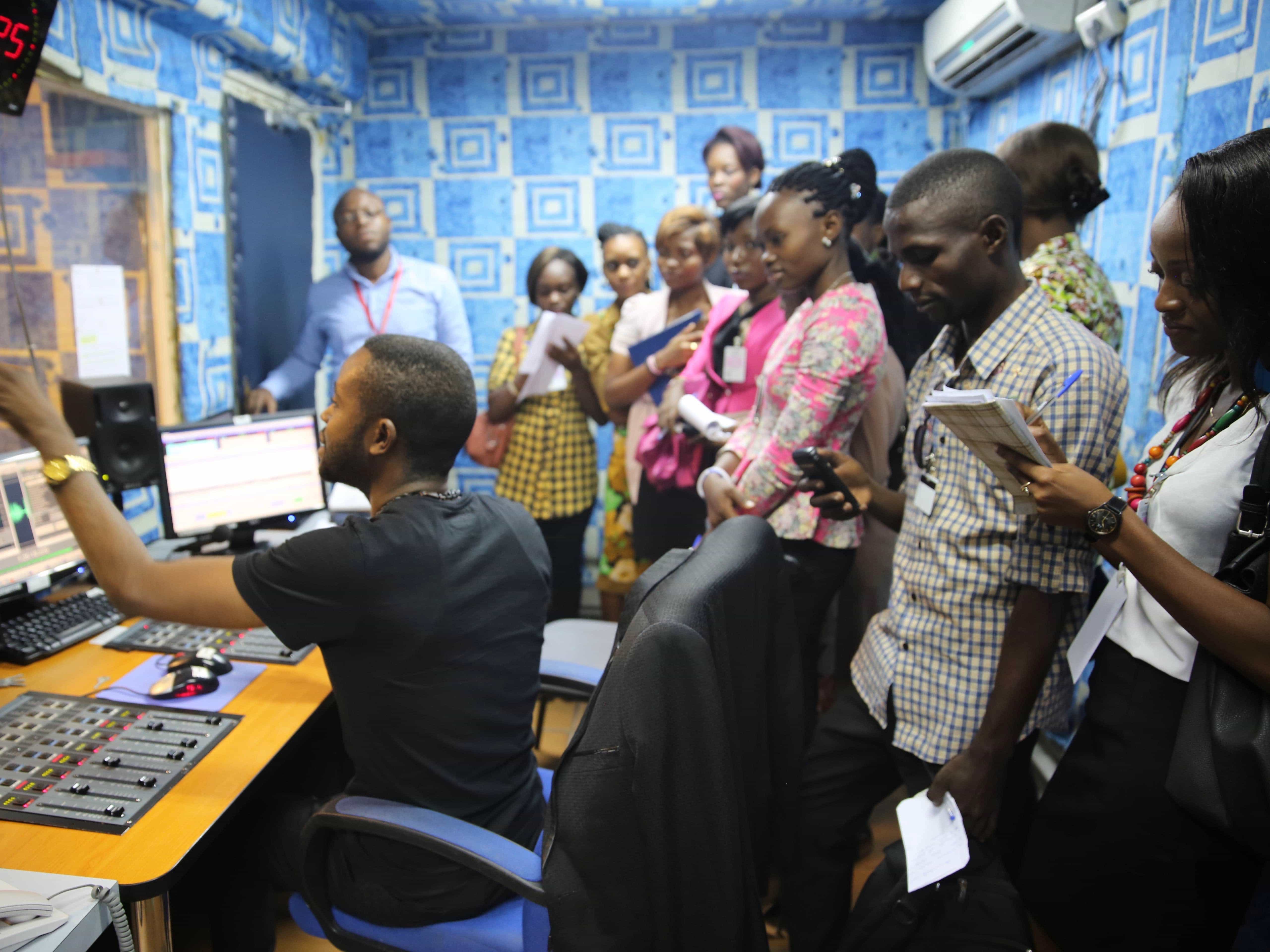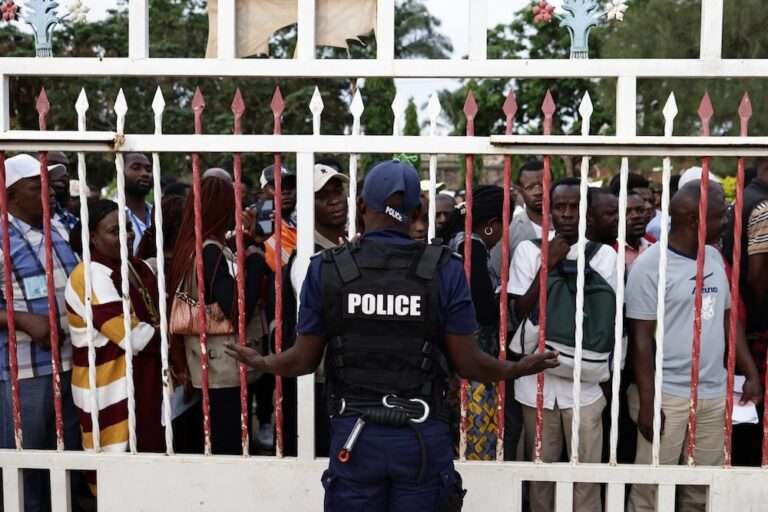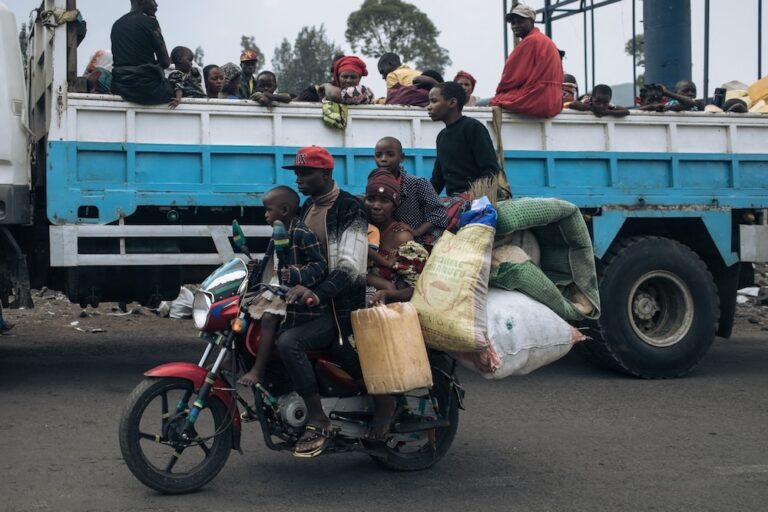How a DRC station encouraged people to lay down arms and embrace plurality.
In an interview with with Radio Netherlands in 2004, David Smith – then Chief of Information at the United Nations Organization Mission in the Democratic Republic of the Congo (MONUC) – described a project that would fundamentally change the role of radio in the Democratic Republic of Congo (DRC):
Smith was describing Radio Okapi – a station that had been formed only two years earlier, in 2002, through a joint effort between MONUC (now called MONUSCO) and Swiss NGO Fondation Hirondelle.
The multilingual radio station – created in the final years of the DRC’s bloody, internal conflict that some have described as “Africa’s first world war” – was established with the intent of becoming “the first media outlet to provide national coverage, regardless of political affiliation.”
At the time of its creation, radio was the main instrument through which people accessed news in the DRC, due to its high accessibility and low cost. But the diversity of opinions and information available to citizens at the time was limited. According to Michelle Betz, author of “Radio as Peacebuilder” – an academic case study of Radio Okapi – in early 2002, only nine other radio stations operated in Kinshasa. Up until that point, Betz notes that opposition parties had difficulty gaining access to state-owned broadcasts, and private radio stations often criticised the government less than private newspapers.
Since it started broadcasting, Radio Okapi, the grassroots station that was formed with an aim to “convince people that it’s in their interest to lay down their arms,” has grown to the point where it has approximately 25 million listeners, and employs 191 people, according to Amadou Ba, its director.
This is not to say that free expression and access to information are no longer issues in the Democratic Republic of Congo. Far from it. The DRC is still considered one of the worst countries for freedom of expression, ranked 152nd out of a list of 180 countries in Reporters Without Borders’ 2016 World Press Freedom Index.
IFEX member organization Journaliste en Danger regularly reports on attacks on journalists, arrests of reporters, the shutdown of media outlets, and legislation that hinders access to information. There have even been cases of journalists killed for their reporting.
Nevertheless, Radio Okapi is working to change things. It is the first station to ever broadcast across both government and rebel-held territory, on shortwave and FM. Not only that, the station broadcasts in the five major languages of the region (French, Lingala, Swahili, Tshiluba and Kikongo), making it far more inclusive than stations that only cater to one language or cultural group.
It is now 14 years since the creation of Radio Okapi – and with the war officially over – it’s an ideal opportunity to reflect on how and why this station has become known as “peace radio.” In the Q & A below, Mr. Amadou Ba, Director of Radio Okapi, responded to questions IFEX had about the station’s role in Congolese society, and its plans for the future.
What role does the radio play in keeping people in the DRC informed of news and political developments?
Radio Okapi plays an important role in the processing and flow of information to the population. At the same time, it has become the main source, and acts as a press agency by supplying to newspapers and even other radio stations in the Congolese media landscape. Its website has only gained momentum with over two and a half million visitors per month. Its Facebook page has over half a million friends. Radio Okapi is a way for citizens to access facts, data, ideas and thoughts necessary to exercise their free will. Radio Okapi remains the only medium that allows the vast majority of the population to speak on the big and small events in the local and national life of the country.
What distinguishes Radio Okapi from other stations in DRC?
Radio Okapi is aware of the role it plays in the Congolese people’s national reconciliation process. It is a major force for dialogue throughout the Republic, and supports the people’s efforts to promote the rule of law, and the economic, social, and cultural development of the DRC.
A second defining feature is that Radio Okapi consistently demonstrates high professionalism by seeking information straight from its source. It strives for a more rigorous approach to how information is handled and how contributors are chosen.
Radio Okapi upsets the established order. It gives a voice to everyone, from a government spokesperson to a peasant in the most remote corner of the country.
It gives citizens the opportunity to not only make their needs and their views known, but also gives them a forum for disseminating constructive ideas.
Has the role of Radio Okapi changed since its inception?
Since its creation on February 25th, 2002, Radio Okapi has defined itself as the radio of peace in the DRC. Its purpose stems from the desire to establish and promote a culture of peace. There is a fierce desire to counter media manipulation for military purposes, which thrives in this part of the sub-region – like Radio Television Libre des Milles Collines, in neighbouring Rwanda.
For several years, Radio Okapi has been evolving towards becoming a radio station for development. It carries out a major social function by making an effort to contribute to citizen’s daily lives, to rebuild the country and to establish the rule of law by means of its crucial mission of preserving an impartial, relevant, credible, and verified media.
Who are Radio Okapi’s critics? What are their concerns?
They come mostly from the political class, sometimes from the majority, sometimes from the opposition. It depends on the prevailing political environment. Invariably, Radio Okapi is accused of not giving enough airtime to a particular political party in a country in which there are more than 500 of them.
Fortunately, Radio Okapi has set up a whole system for monitoring newspapers. It hosts a monthly inventory of guests on its shows, like Dialogue Entre Congolais (Dialogue Between Congolese) and the interactive program, Parole Aux Auditeurs (Giving a Voice to the Listeners).
Given that Radio Okapi was created by the UN and the Fondation Hirondelle, is it able to be truly independent?
To my knowledge, no injunctions or specific guidelines have ever been exercised over the editorial line of Radio Okapi.
On the contrary, from its inception, this radio station was conceived as a medium for the Congolese people. It is no coincidence that broadcasting started on February 25th, 2002 – the day talks started between the Congolese at Sun City, in South Africa, in a meeting where effort was made precisely towards pacifying the country, which was thoroughly divided. In this way, Radio Okapi contributed a great deal to the reunification of the DRC.
Over time, this radio station has skillfully been able to bring together debates between the different parts in the conflict into the same public space.
I am tempted to add that 15 years later, there is something which I call the Radio Okapi effect. Rather than stirring up jealousies, Radio Okapi seems to have become the model to be imitated, not being accused of being an “outside agent.” There is a real emulation insofar as much of the media want to do as Radio Okapi does.
How long do you foresee Radio Okapi being around for?
For now, it is difficult to accurately answer your question. What I can tell you is that as long as the United Nations Organization Stabilization Mission in the Democratic Republic of the Congo (MONUSCO) is part of RDC, Radio Okapi will continue to broadcast. Only the United Nations Security Council can predict the end of MONUSCO. Its mandate has been extended until June 30th, 2017. What I should add is that the United Nations seems truly determined to ensure the continuation of Radio Okapi even after the withdrawal of MONUSCO. There are ongoing discussions over this continuation.
There is no single voice that unites all the Congolese people. This radio project will allow people in rebel held territories to speak to people in government-controlled territories for the first time since the war broke out.



